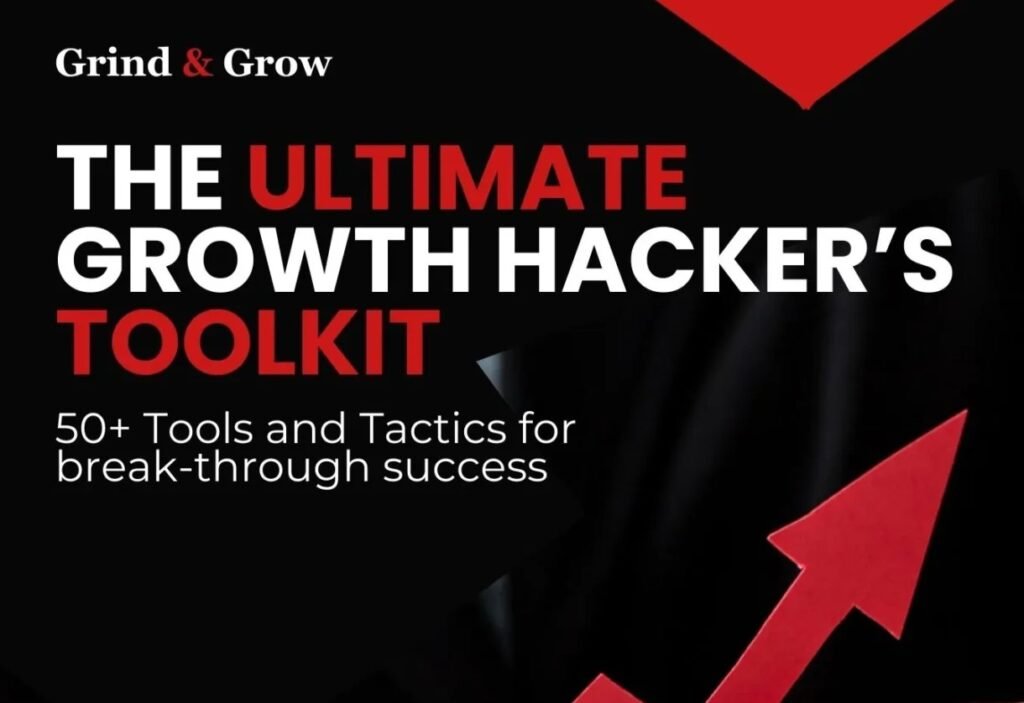In the fast-paced world of business, time is your most valuable asset. Are you constantly juggling tasks, meeting deadlines, and striving for excellence? If so, adopting time-saving habits for entrepreneurs could be a game-changer for you. At Grind & Grow, we believe that efficiency is the key to scaling your business quickly and effectively. This article dives into powerful strategies to optimize your schedule and skyrocket your productivity.
Prioritizing Tasks Effectively
For entrepreneurs, juggling numerous responsibilities is no small feat. That’s where the art of task prioritization comes into play. By understanding and implementing task prioritization, you can gain a clearer focus, potentially skyrocket your productivity, and say goodbye to unnecessary stress.
The Importance of Task Prioritization
Why prioritize? Well, when everything feels urgent, it’s easy to get overwhelmed and burn out. Task prioritization helps you zero in on what truly matters. By distinguishing between what is urgent and what is important, you can make better decisions about where to allocate your time and energy.
Methods to Prioritize Effectively
Two popular methods stand out when it comes to time-saving techniques for entrepreneurs: the Eisenhower Box and the Pareto Principle.
The Eisenhower Box (also known as the Eisenhower Matrix) offers a straightforward approach by dividing tasks into four quadrants based on urgency and importance. Here’s a brief breakdown:
– Urgent and Important: Handle these tasks immediately.
– Important but Not Urgent: Schedule these tasks for later.
– Urgent but Not Important: Delegate these to someone else.
– Neither Urgent nor Important: Consider eliminating these altogether.
On the other hand, the Pareto Principle, often called the 80/20 rule, suggests that 80% of your outcomes come from just 20% of your activities. So, focus on the tasks that promise the most significant impact.
Balancing Urgent vs. Important Tasks
Navigating between urgent and important tasks requires finesse. By learning to differentiate between the two, you can decide which tasks deserve immediate attention and which can wait. Such discernment aids in improved decision-making, reducing the pressure you might feel about meeting every deadline head-on.
Overall, mastering these prioritization techniques can lead to more strategic actions and a calmer entrepreneurial journey. Remember, not every task on your list holds equal weight. Pick your battles wisely.
Mastering the Art of Delegation
Delegation is an indispensable skill for entrepreneurs looking to maximize their productivity. By effectively handing off tasks, you can reclaim precious hours to focus on what’s truly important for your business. But how do you decide which tasks to delegate? It’s essential to distinguish between high-impact tasks that demand your personalized touch and routine activities that someone else can handle. Routine tasks like administrative work, basic customer service, and data management are excellent candidates for delegation.
Choosing the Right Team Members
Entrusting the right people with the right tasks is pivotal. Consider the skills and strengths of your available team members. Is there an employee who excels in customer relations, or perhaps someone adept at data analysis? It’s all about aligning their talents with the task at hand. Sometimes, finding the perfect fit means looking outside your immediate team and engaging virtual assistants or freelancers.
Exploring Virtual Assistants and Freelancers
Virtual assistants and freelancers present a flexible workforce solution without the overhead of full-time staff. They’re particularly beneficial for tasks like social media management, content creation, and bookkeeping. But how do you select the right candidate? Look for proven track records, client testimonials, and alignment with your business values.
Overcoming Delegation Hurdles
Despite the advantages, many entrepreneurs struggle with delegation. Common hurdles include fear of losing control, lack of trust, and concerns about task quality. A practical solution is to start small—delegate minor tasks to build confidence and gradually increase responsibility as trust is established. Clear communication and setting precise expectations can alleviate concerns over quality and deadlines. Embrace the learning curve and remember, delegation is a means to liberate your schedule for strategic thinking and business growth.
Leveraging Technology for Efficiency
In the hustle and bustle of entrepreneurial life, every minute counts. So, how can you make the most out of each day? By leveraging technology to streamline your operations. Utilizing software and apps to automate tasks not only saves time but also enhances productivity across the board.
Task Automation with Software
First up, let’s talk about task automation. It’s all about letting technology do the repetitive work for you. Tools like Zapier and IFTTT are fantastic for creating automated workflows. For instance, you can sync your social media posts across platforms or get notified every time you receive a new client inquiry. The possibilities are endless, giving you more time to focus on what truly matters—growing your business.
Streamlining with Project Management Tools
Managing projects efficiently is crucial, and that’s where project management tools come into play. Platforms like Trello and Asana help you organize tasks, assign responsibilities, and set deadlines—all from one dashboard. This not only keeps your team on the same page but also significantly reduces the endless back-and-forth emails that clutter your inbox.
Efficient Communication Platforms
Now, let’s chat about communication platforms. Slack and Microsoft Teams are excellent for real-time collaboration. They offer channels for different topics, direct messaging, and even integrate with other apps you use daily. This facilitates quick decision-making and ensures everyone is aligned, no matter where they’re based.
Harnessing Calendar Apps
Don’t underestimate the power of calendar apps. Tools like Google Calendar and Calendly simplify scheduling by allowing others to book time on your open slots, thus eliminating the need for lengthy email exchanges. Using reminders and alerts can help you stay on top of your commitments and avoid any last-minute surprises.
Incorporating these tools into your routine enables you to focus your energies on strategic tasks and innovative solutions rather than mundane operational details.
Mastering Time-Saving Habits for Entrepreneurs
Cultivating Habits for Long-Term Success
As an entrepreneur, it’s crucial to cultivate habits and routines that not only save time but also align with your long-term goals. By doing so, you’ll be setting the foundation for enduring success and consistent growth in your business. Let’s explore some essential areas where you can establish these habits.
Setting Boundaries
In the chaotic world of entrepreneurship, setting boundaries is key. It’s easy to get lost in the whirlwind of tasks and responsibilities, but clear boundaries help you protect your time and energy. Consider dedicating specific times for work and personal life. This not only enhances productivity but also helps maintain a healthy work-life balance.
Optimizing Work-Life Balance
Achieving a work-life balance is more than just a buzzword. It’s about ensuring you have the time to recharge and maintain your well-being. Plan your day strategically, allocating breaks where you can unwind and disconnect. Trust that by taking care of yourself, you’ll be more present and effective when it’s time to tackle business objectives.
Maintaining Your Well-Being
Your health is your greatest asset. Regular exercise, a balanced diet, and mindful practices like meditation can drastically improve your focus and energy levels. Incorporate small, meaningful habits into your daily routine that prioritize your health.
By setting boundaries, optimizing work-life balance, and maintaining your well-being, you’ll create a sustainable pattern that not only boosts your productivity but also ensures the longevity of your entrepreneurial journey. Your business is a marathon, not a sprint, and cultivating these habits will keep you firmly on the path to success.
Common Questions
What are some examples of time-saving habits?
Some time-saving habits include task prioritization, effective delegation, using productivity apps, and setting clear goals.
How can technology help save time for entrepreneurs?
Technology helps by automating routine tasks, improving communication, and providing tools for better project management, thus allowing entrepreneurs more time to focus on core activities.
Is it necessary to delegate tasks?
Yes, delegation allows entrepreneurs to focus on high-priority tasks by entrusting routine or specialized tasks to others, increasing overall efficiency.
How do I know what tasks to prioritize?
Assess tasks based on urgency and importance using tools like the Eisenhower Box, and focus on activities that align with long-term goals.
Conclusion
Synchronizing efficient habits can transform how entrepreneurs tackle daily challenges. By capitalizing on prioritization, effective delegation, and leveraging technology, you carve out space for innovation and critical thought. Remember, creating a successful business requires more than hard work—it needs smart strategies. At Grind & Grow, we continue to explore paths that help entrepreneurs maximize efficiency and drive growth.
Interested in how you can accelerate the growth of your business? Find more resources like this one to grow your business cost-effectively at grindngrow.com, and consider joining our mailing list to get exclusive tips and extraordinary savings on services to grow your business.






